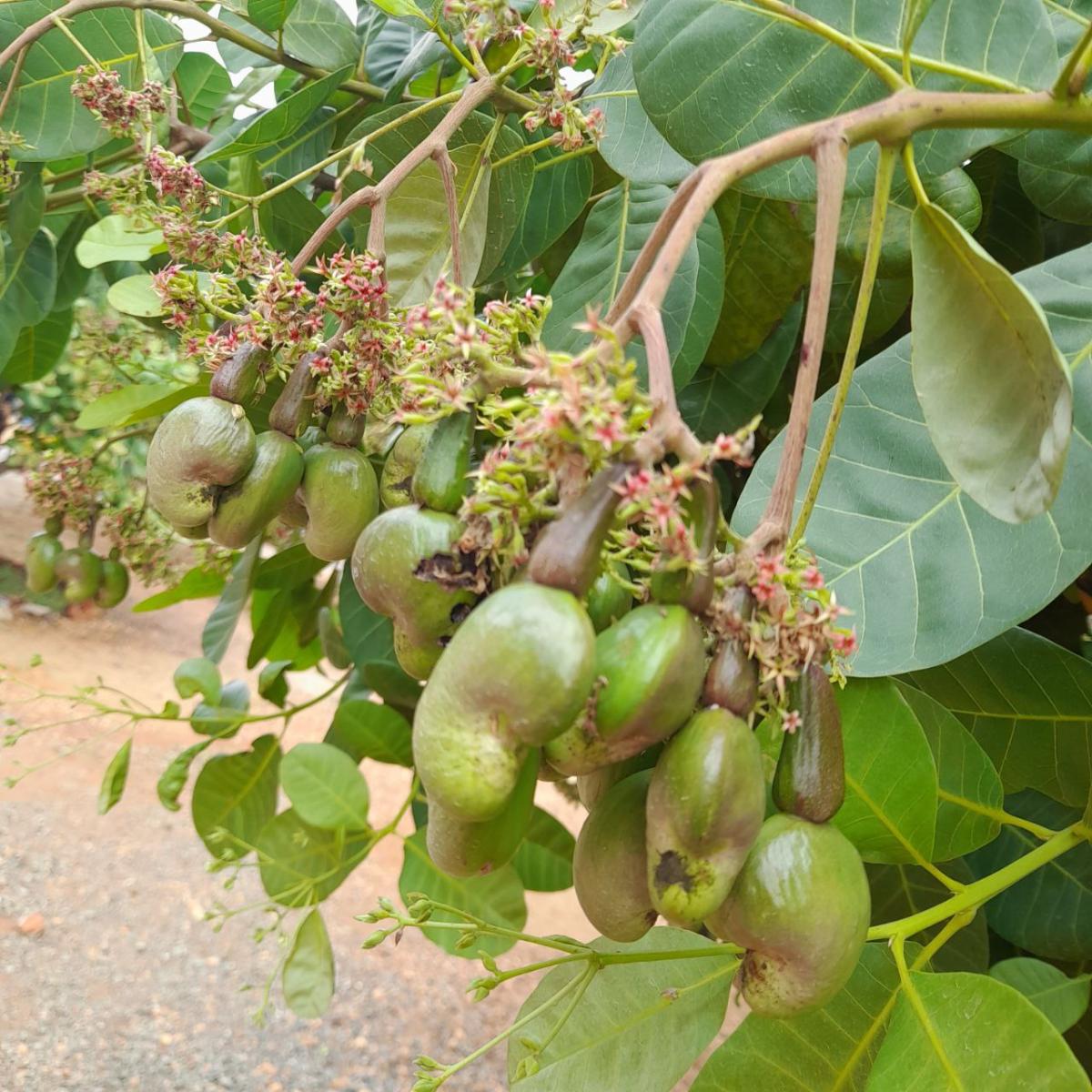Cambodia ranks among the top 10 producers of cashew nuts in the world, but it only processes 10 percent of its own crop. The remaining 90 percent is exported raw to other countries, mainly Vietnam, where nuts are processed and sold at higher prices to export markets.
The Cashew Export Development Program supported by the U.S. Agency for International Development (USAID) is partnering with the Cambodia Cashew Federation to shift the balance. The program, implemented by USAID’s Feed the Future Cambodia Harvest III (“Harvest III”) project, addresses challenges and creates opportunities to add more value to local products in the Cambodian cashew sector, which can then go directly to customers in new export markets. Harvest III works with cashew farmers and processors, including farmers from indigenous communities living near protected forests, to provide training on post-harvest handling, grading, sun-drying, warehousing, food safety standards and market requirements. The program then links Cambodian sellers with international buyers at trade fairs and other business matchmaking events.
In a recent business expo and trade fairs in the United States organized by Harvest III, the Cambodia Cashew federation and four Cambodian cashew export companies (Sebbakam Ker Chhnai Kroib Svay Chanty Chey Sambo [Chey Sambo], Handcrafted Cashew Nut Stung Streng [HCST], Ample Agro Product, and Cashew Village) had an opportunity to meet and connect with new buyers in Long Beach, California and Chicago, Illinois. Some have already received purchase orders from U.S. buyers.
“Benefiting from this program, Ample engaged with around 15 buyers, and received the first order of our three flavors cashew kernels from U.S. buyers,” said Ms. Sambath Kallyan, CEO of Ample Agro Product. “Several other buyers have requested to visit our processing facility in February 2024 just before the cashew harvest season. We are optimistic as we have a cashew processing facility that complies with international standards.”
To accelerate investment in the Cambodian cashew sector, Harvest III also provided direct grants to support HCST, Chey Sambo, Ample Agro Product, Sovannak Mujin, and a few new prospects to improve and expand processing facilities, provide training to farmers, and secure food safety certifications for export. These grants created jobs in rural Cambodian communities, and helped companies increase sales in international markets including the U.S., Japan, Korea, Singapore, Hong Kong, Switzerland, and Taiwan.
Ms. Muth Chakriya, founder of HCST explained that “The company was established in 2021 during the COVID-19 pandemic with grant support from the Harvest II project. Our vision is to promote local products and provide economic opportunities for smallholder farmers especially women, youth, and other marginalized groups. And now with ongoing support from Harvest III, HCST has expanded our processing facilities, increased our capital investment to 60 percent compared to last year, and contracted with almost twice the number of farmers.”
Another female cashew processor in Kampong Thom, Ms. In Laihourt, has also received support from Harvest III. “We’ve grown from a small to a medium-sized business as we expand our processing facilities. We’ve applied for [food safety] and organic certifications, helping us gain reputation in both local and international markets. As a cashew processor, I have a vision to bring delicious and healthy snacks to Cambodian and international consumers.”
On February 1-3, 2024, Cambodia will host the World Cashew Conference in Siem Reap, an opportunity to highlight local products and jumpstart Cambodia’s aspirations to transform its cashew sector and become a global leader in cashew processing and export by 2027. Such a transformation would bring opportunities for agribusiness development and job creation. According to one recent estimate, at least 50 medium-sized processing facilities will be required to reach desired capacity – where there are currently only three.
“Direct sales in export markets boost business confidence through first-hand knowledge about opportunities in those markets. Companies can adopt various strategies to seize opportunities, such as product innovation, collaboration, investment, and standards. The industry is undergoing significant changes, and we hope to see many new Cambodian companies selling processed cashew on the world stage soon,” Nimish Jhaveri, Chief of Party of Harvest III concluded.
Feed the Future Cambodia Harvest III is a five-year project (2022–2027) supported by USAID to promote sustainable, broad-based economic growth through increased diversification, inclusion, sustainability, resilience, and competitiveness in Cambodia’s agriculture sector. Harvest III builds on investments that USAID/Cambodia has made in promoting sustainable economic opportunities through Feed the Future programming. Over the five-year period, USAID expects to generate $100 million in sales, $38 million in private sector investment, and 3,200 jobs.




